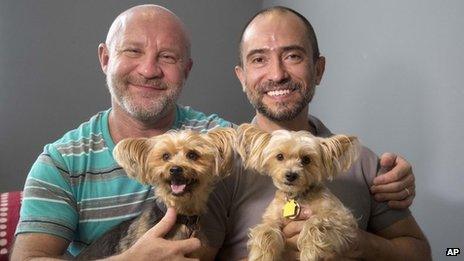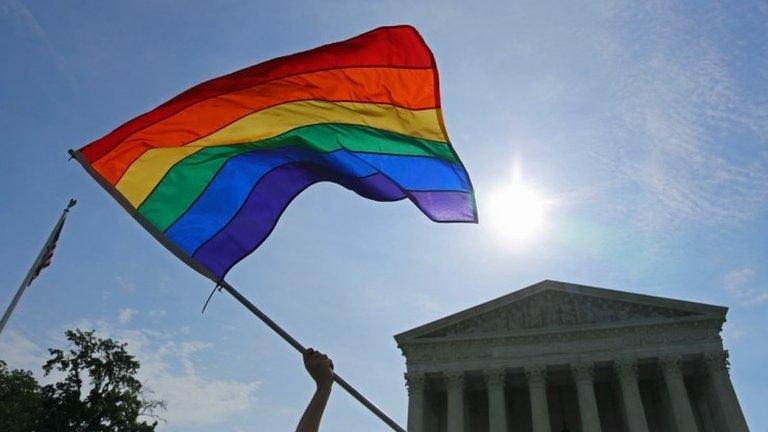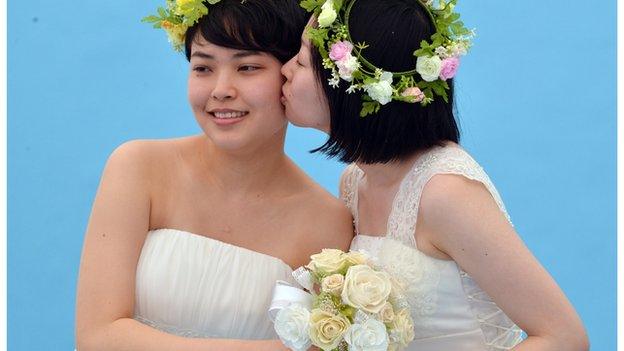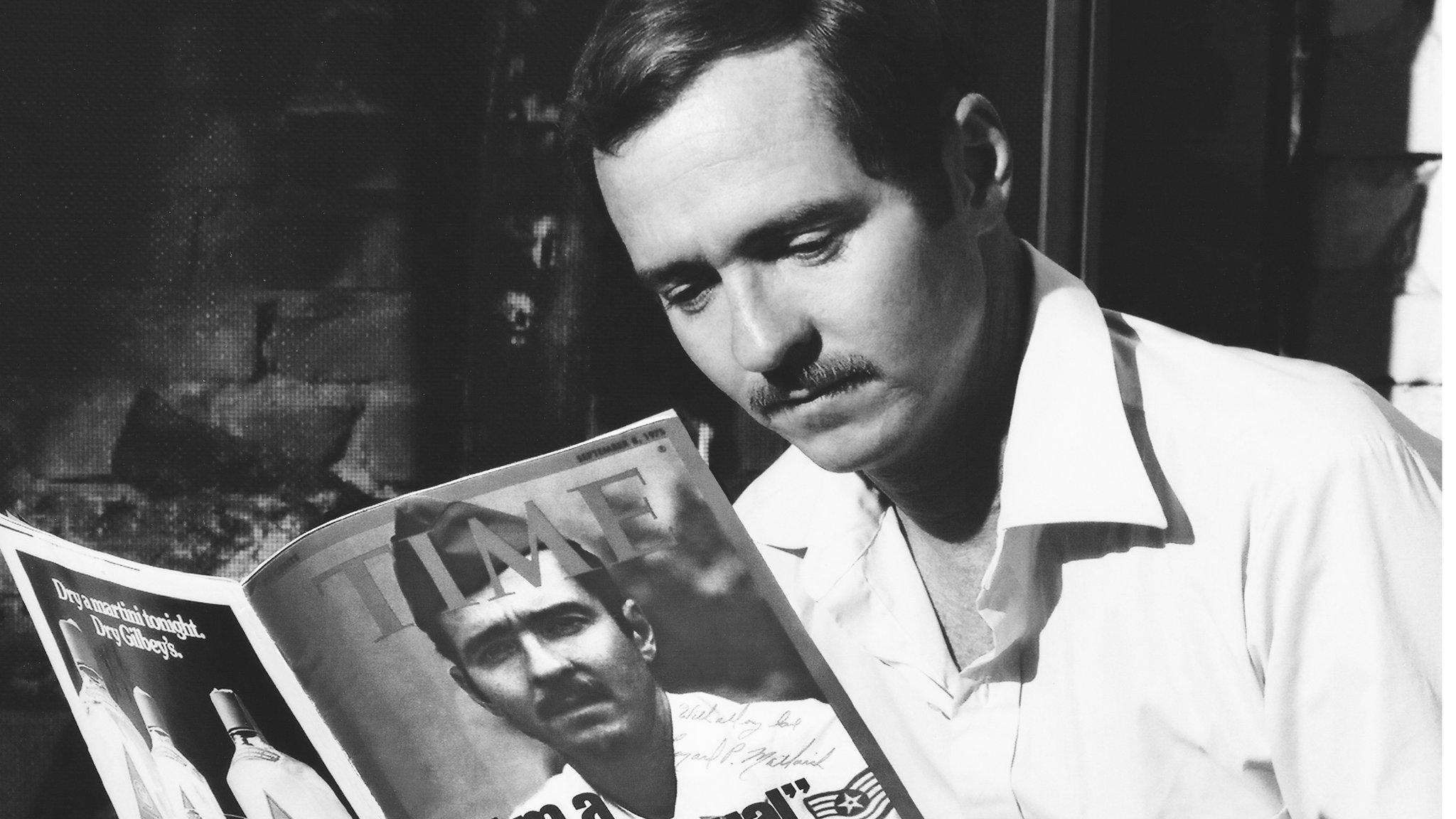Gay green card petition approval is US first - lawyer
- Published

Julian Marsh, left, and Traian Popov at their home in Fort Lauderdale
A Bulgarian student who is married to an American has become the first gay man to have his application for a green card granted, says their lawyer.
The approval is seen as proof of US visa policies quickly adapting to last week's historic Supreme Court ruling on same-sex marriage.
Traian Popov, who wed Julian Marsh in New York, may now apply for immigration benefits and a permanent resident visa.
But their union is still not legal in the state of Florida, where they live.
Last week the Supreme Court threw out a law banning gay couples from receiving benefits available to other couples.
The justices ruled that the 1996 Defense of Marriage Act discriminated against same-sex couples.
'Second-class citizen'
Mr Marsh and Mr Popov were informed on Friday by Citizenship and Immigration Services that their green card petition had been approved, two days after the landmark ruling.
Mr Popov is currently able to stay in the US on a student visa, as he is enrolled in college. But he would have had to leave the country once he graduated.
The Department of Homeland Security could not confirm that their case was the first of its kind to be approved.
Mr Marsh said it is still troubling that their union is not recognised in Florida.
"They make you feel more and more like a second-class citizen, and they don't want you," he told the Associated Press news agency.
"And that's how I feel about Florida."
Mr Marsh explained that before last week's Supreme Court ruling, he and his husband had started to consider other options that would allow them to remain together, but they wanted to keep living in Fort Lauderdale.
"We would like our marriage to be recognised even in a state where it wasn't performed," Mr Marsh added.
There are about 36,000 same-sex couples in the US in which one partner is not a citizen, according to the non-profit immigration group Immigration Equality.
Before last week's rulings, under the Defense of Marriage Act legally married same-sex couples were denied federal benefits available to opposite-sex couples.
These include tax, health and pension benefits and family hospital visits.
- Published26 June 2015

- Published11 June 2013

- Published25 March 2013
